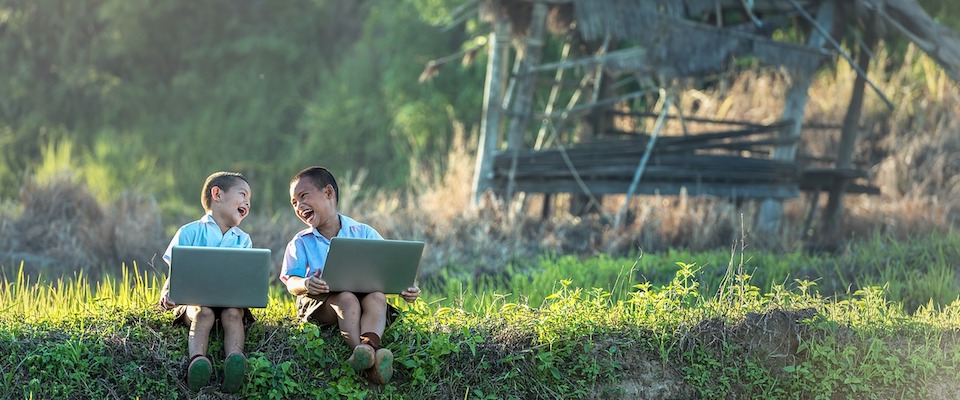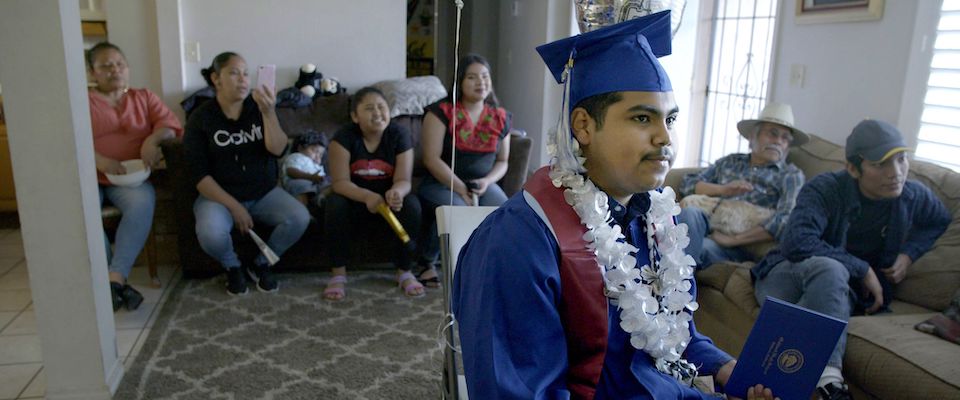Kids don’t play like they used to. For one thing, they are too often locked to their screens. For another, we’ve got ’em on tight schedules, shuttling from play dates to practices, music lessons to ball games.
When I was growing up in the 1970s, we had some of that as well, but what I remember most fondly are the long summer days when I’d disappear after breakfast and not make it back until dinner. My friends and I would form loose packs and roam the neighborhood like wolf pups. When hunger struck we’d raid a friend’s house for lunch, then light out again in search of fun and trouble.
In the winter, on snow days, it was more of the same: sledding and snowball fights from sunup to sundown. If it rained, I might draw for hours or build an airplane model or stage hundreds of little green army men for an epic battle on the living room furniture.
In an interview with California in 2013, the late writer Ursula K. Le Guin described this as “the big empty day with nothing in it where you have to kind of make your day yourself.” Le Guin, who grew up in Berkeley in the 1930s and ’40s, the daughter of famed anthropologist Alfred Kroeber and bestselling writer Theodora Kroeber, urged today’s parents to give their kids more days like that, give them “room to be themselves, to flail around and make mistakes.” A similar view finds expression in Barry Bergman’s wonderfully playful essay, “States of Play.” As Bergman’s piece stresses, there’s value in play that goes beyond fun and extends into learning, survival, and fulfillment.
Play, in other words, is serious business.
I was thinking a lot about the “big empty day” last summer at the Lair of the Golden Bear, the Cal Alumni Association’s summer camp in the Sierra, the founding of which makes it into our timeline of Cal at Play (available in print only). As any experienced Lair camper knows, there are plenty of scheduled activities at camp but you can do with your day what you will, whether it’s playing tennis on the courts, swimming in the pools, fishing and boating on Pinecrest Lake, hiking in the surrounding mountains, or just lazing around the tent-cabin with a good book in hand. In a typical week, most campers will manage to do all that and more.
More to the point, the Lair is one place where my kids can come close to experiencing the youth I was recalling above. They’re free to do as they please, to wander, to fill up the day as they see fit. The key, as another parent at the Lair confided in me, is the feeling of safety you get there, thanks in no small part to the staff and other campers. At home in Oakland, she said, she wasn’t comfortable letting her little ones roam. There was too much traffic, too much crime, and, well, the looming threat of child abduction. Rationally, she knew that threat was, in fact, vanishingly remote. But rationality only gets you so far when it comes to your children’s safety.
Rationality and risk certainly come into play in Coby McDonald’s story, “Necessary Roughness,” about the football crisis of a hundred years ago and how it speaks to the “concussion crisis” of today. Back then, around the last turn of the century, Cal gave up football for nearly a decade because college players were dying—literally dying—on the field. Today, an alarming number of players are afflicted with a degenerative brain disease known as chronic traumatic encephalopathy, or CTE, likely as a result of repeated head impacts.
Just how prevalent CTE is, what exactly causes it, and how we can prevent it are all open questions. As McDonald reports, scientists at Berkeley and elsewhere are struggling to answer those questions, even as engineers, coaches, and medical staff try to make the game safer. In the meantime, parents are left to wrestle with the question of whether or not to let their kids play the game.
I imagine some fans may read McDonald’s piece as an attack on football, while critics of the sport may read it as too sparing. As always, I encourage folks on both sides (and in the middle) to write in and let us know their thoughts on that or any other story in the issue. Correspondence may be sent to californiamag@alumni.berkeley.edu. Please put “Letter to the Editor” in the subject heading.





















